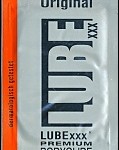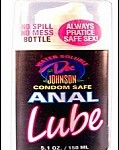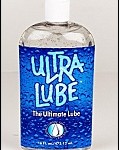Lubes: Love ’em Or Leave ’em
They’re not just for easing entry anymore. Personal lubricants are taking their place as true sexual enhancement products that not only get your glide on, but actually offer stimulation.
But the days of nothing but sticky, chemically infused lubes are gone. Consumers are becoming increasingly aware of the fact that most personal products contain harmful ingredients that should be avoided. And unfortunately nowhere is the use of potentially harmful products more prevalent than the intimate or adult product industry that’s behind the curve when it comes to using natural ingredients.
It seems like customers go they are inundated by “organic” and “health orientated” products at the grocery store, health store and pharmacy. The fact is that natural has become a hot button when it comes to intimate products that consumers are putting on or inside their bodies. It becomes important then to supply an option. Retailers are starting to understand that they now have a choice when it comes to offering natural lubricants and enhancing gels.
One brand that’s leading the way of “healthy lubes” is Intimate Organics. XBIZ spoke to Rebecca Powley, director of business development at the product’s company Secretly Pink. “Retailers wanted a healthy alternative and had not been able to find one — and because we have heard this cry from many retailers and distributors alike we created Intimate Organics in 2008 to fill that niche by developing healthy, unique, and high quality products to increase excitement and intimacy between partners.”
Intimate Organics offers a range of “healthy lubes,” Powley said, that are all paraben DEA (diethanolamine) and menthol free and made with USDA Certified Organic Extracts.
For example, its Defense protection lubricant contains carrageenan (sea kelp) and guava bark anti-bacterial extract. Powley said this is an exciting breakthrough in lubricants.
“A recent study conducted by researchers from The National Cancer Institute (NCI) found that carrageenan, as an ingredient, inhibits the infectious ability of viruses that cause cervical cancer and genital warts. The NCI findings, as reported in a peer-reviewed journal published by The Public Library of Science, are being studied for its potential impact in combating the spread of sexually transmitted diseases (STDs). In an age when STDs are still on the rise, this news has made medical breakthroughs,” Powley said.
The test-tube study was found to inhibit the infectious ability of genital HPV with nearly a thousand-fold greater potency than other inhibitors tested, according to NCI researchers. Early results are promising. In fact, The Population Council is in the process of conducting additional research and clinical trials on formulations that include one or more forms of carrageenan as a major ingredient.
Other products include Hydra, a plant-cellulose glycerine-free formula for an everyday lube that a woman can use for vaginal dryness and use with toys; Melt, a warming lubricant that warms the skin on contact through natural derived glycerine and a bark extract; and Soothe, the only natural antibacterial anal lubricant that uses natural guava bark extract, used for years as an antibacterial agent.
This simple philosophy of using superior ingredients is making the Intimate Organic line a success, and the strategy that should be adopted industry-wide by adult businesses, according to Powley.
She did note that some are paying attention. Companies including WET, Earthly Body and Divine 9 are getting into the game by offering glycerine free and paraben free lubricants.
Powley also cautions retailers about the potential harmful ingredients that may be in the products they’re currently selling.
Parabens and their salts — a group of chemicals widely used as preservatives in the cosmetic and pharmaceutical industries primarily used for their bacteriocidal and fungicidal properties — can be harmful. Published studies have shown that parabens are can be absorbed through the skin and bind to the body’s estrogen-receptors encouraging breast cancer cell growth. They can also mimic the hormone estrogen, which is known to play a role in the development of breast cancers.
Other side effects could include the altering of the estrogen process among women, increasing the tendency of developing estrogen-dependent diseases like breast tumors.
Parabens could also exacerbate existing allergic reactions, decrease male sperm cells, promote dermatitis and rosacea, spur the development of skin cancer and even cause problems for fetal development.
Diethanolamine, or DEA a chemical used as a wetting agent in lotions, creams, and other cosmetics is not harmful by itself. However if it sits on stores’ shelves or in one’s purse it can react with other ingredients to form a potent agent and absorbed through the skin that’s been linked with stomach, esophagus, liver, and bladder cancers.
Also beware of menthol. The majority of menthol in personal products is synthetic, which can be irritating and drying to a woman’s clitoris and vagina.
With the knowledge that there are lubricants available that contain parabens, DEA, menthol and a host of other nasty stuff, it only makes sense to offer customers “healthy” lubes for everyone involved.





This entire article was a paid advertorial. The author, Ryan Lynch, is a fictitious name and does not exist. The real author is Rebecca Powley of Intimate Organics, an advertiser in Xbiz magazine. Many of the claims in this article do not have a scientific basis, and there are no clinical studies to back up many of those claims. Xbiz did print a weak retraction of this article on the editors page in the June edition of their magazine. The entire article is misleading to readers and consumers. It should never have been allowed to run in Xbiz. But the credibility and respectability of Ms. Powley and Xbiz are now open to interpretation.